Many efforts have been made over the past several years to diversify Eastern European and Eurasian studies. This new spotlight surfaces research that has been conducted by many scholars for much longer, highlighting their commitment to telling stories and honoring perspectives of diverse and minority communities. Their work reveals that while there is no unified queer experience in the region, there is often a one-size-fits all state response to the reality of queer lives in many nations within the region. How can a queer-studies focus advance conversations about decolonization in East European and Eurasian Studies? To address this question, Queer Focus will have seven virtual panels featuring speakers from various disciplines and institutions. Panelists and participants will explore how gendered regimes were constitutive of Russo-centric relationships of power, defining the region and how we study it, as we collectively grapple with what it means to re-examine our current research, teaching, and institutional practices.
Panel I. Overview/State of the Field
January 19, 2024 11:00 - 12:30 p.m. EST
Moderator:
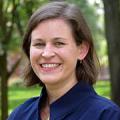
Emily Channell-Justice is Director of the Temerty Contemporary Ukraine Program at the Ukrainian Research Institute, Harvard University. A sociocultural anthropologist, she first started learning the Ukrainian language and carrying out research in Ukraine in 2012. She pursued research on political activism and social movements among students and feminists during the 2013-2014 Euromaidan mobilizations. She is the author of an ethnography, Without the State: Self-Organization and Political Activism in Ukraine (University of Toronto; 2022), and an edited volume, Decolonizing Queer Experience: LGBT+ Narratives from Eastern Europe and Eurasia (Lexington Books; 2020). She has published academic articles in several journals, including History and Anthropology, Revolutionary Russia, and Signs: Journal of Women in Culture and Society. She received her Ph.D. from The Graduate Center, City University of New York, in September 2016, and she was a Havighurst Fellow and Visiting Assistant Professor of International Studies at Miami University, Ohio from 2016-2019.
Speakers:

Simone Bellezza is Associate Professor of Modern History at the Department of Humanities of the University of Eastern Piedmont. The fil rouge of his work is the study of national belonging and its relationship with other kinds of loyalty (social, political, cultural, and religious). He is currently investigating, through the study of the Ukrainian case, the importance of the relationship between diaspora communities and their original homeland in the emergence of the human rights movement during and after the Cold War. His book The Shore of Expectations: A Study on the Culture of the Shistdesiatnyky has been awarded the Pritsak Book Prize by the ASEEES in 2020. Together with Elena Dundovich they edited the volume Queer Transnationalities: Towards a History of LBGTQ+ Rights in the Post-Soviet Space published by Pisa University Press in 2023.
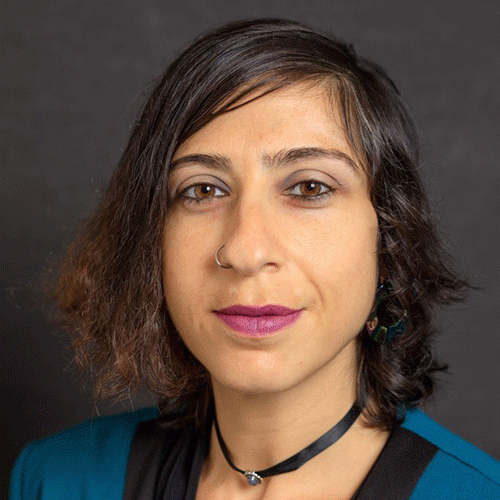
Tamar Shirinian Assistant Professor of Anthropology at the University of Tennessee. Tamar Shirinian is a cultural anthropologist focusing on vast areas of queer theory and studies, transnational feminisms, political economy, the processes of post-socialism, psychoanalysis, and, more recently, medical and psychological anthropology. Her current research takes up questions of access and equity in mental healthcare in the United States. This work is propelled by questions around differential access to structures of care (i.e., health insurance, medical and psychological resources), how those structures operate, and how various actors within them negotiate boundaries.

Vladislav Beronja Vladislav Beronja is Assistant Professor in Slavic and Eurasian Studies at the University of Texas, Austin. He is a co-editor of Post-Yugoslav Constellations: Archive, Memory, and Trauma in Contemporary Bosnian, Croatian, and Serbian Literature and Culture (2016), and has published articles in ARTMargins, Slavic and East European Journal, The Journal of Graphic Novels and Comics, and others. He also works as a literary translator.

Jasmina Tumbas (Ph.D., Art History, Duke University) is an Associate Professor of Contemporary Art History & Performance Studies in the Department of Global Gender and Sexuality Studies at the University at Buffalo. She is the author of “I Am Jugoslovenka!” Feminist Performance Politics during & after Yugoslav Socialism (Manchester University Press, 2022), which won the 2023 Barbara Jelavich Book Prize. Her current book project, Queer and Feminist Yugoslav Diaspora: Art of Resistance Beyond Nationhood, is the recipient of the Andy Warhol Foundation Arts Writers Grant. Her research has appeared in ArtMargins, Camera Obscura: Feminism, Culture, and Media Studies, Art Monthly, Art in America, ASAP Journal, and Zeitschrift für Kunstgeschichte.
Panel II. History and Archive
January 26, 2024 11:00 - 12:30 p.m. EST
Moderator:
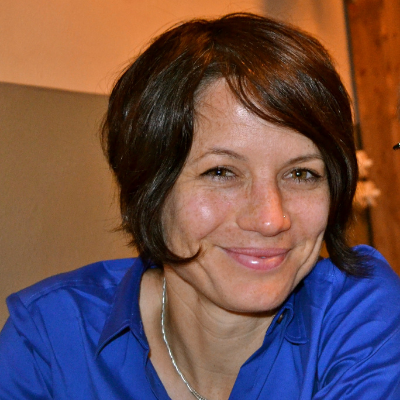
Anita Kurimay (Ph.D., History, Rutgers University) is Assistant Professor of History and Director of Gender and Sexuality Studies at Bryn Mawr College. She specializes in modern European history with an emphasis on East-Central Europe. Her main research interests include the history of sexuality, women’s and gender history, conservativism and the politics of the far right, and the history of sport. She is working on her book manuscript, Sex in the “Pearl of the Danube:” The History of Queer Life, Love, and its Regulation in Budapest, 1873-1961, that explores the relationship between the evolution of the modern East-Central European state and sexuality.
Speakers:

Roman Utkin is Assistant Professor of Russian, East European, and Eurasian Studies as well as Assistant Professor of Feminist, Gender, and Sexuality Studies at Wesleyan University. He specializes in twentieth-century Russian and Russophone poetry, prose, and visual culture. He enjoys teaching and writing on queer theory, exile, comparative modernisms, performance studies, and cinema. Utkin is the author of Charlottengrad: Russian Culture in Weimar Berlin (University of Wisconsin Press, 2023) which examines the Russian émigré and exile community that found itself in Berlin in the aftermath of the 1917 Revolution. A native speaker of both Tatar and Russian, Roman also served on the board of the Committee on Advocacy for Diversity and Inclusion at the Association for Slavic, East European, and Eurasian Studies.

Feruza Aripova is Center Associate and co-chair of the Gender, Socialism and post-Socialism group at the Davis Center for Russian and Eurasian Studies at Harvard University and Visiting Scholar from Columbia University. She recently completed her Ph.D. in World History at Northeastern University. Her doctoral dissertation, titled Fifty shades of Vice: Decolonizing the Soviet homophobic legacy, sought to explore and map the impact of colonial, legal and medical perceptions of same-sex desire on contemporary state policies and public opinion in Russia and its former Eastern and Western borderlands (Central Asian and Baltic republics). Her article on construction of a new historical memory in post-Soviet Uzbekistan that came with the erasure of queer past was published in Central Asian Affairs in 2022. She is also the author of Queering the Soviet Pribaltika: Criminal cases of consensual sodomy in Soviet Latvia (1960s-1980s), a chapter published in Decolonizing Queer Experience in 2021.
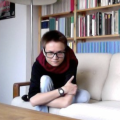
Irina Roldugina is UCIS Postdoctoral Fellow at the University of Pittsburgh and a historian of early modern and Soviet Russia with a particular interest in social history and history of sexuality. In her book manuscript, Vernacular Queer and Shifting Power in Russia: from the Late Imperial Era up to the 1940s, she explores homosexual emancipation in Russia before and after the Revolution of 1917. The focus on emancipation is a novel approach in the historiography of homosexuality in Russia, which so far has concentrated on scientific discourses, experts' knowledge, and the history of prosecution of homosexuals. Based on previously unknown archival evidence, she analyzes the consequences of the spread of literacy, medical knowledge, and law changes in the context of the evolution of same-sex desire. Looking at the process from the perspective of non-elite homosexuals, Irina reveals how their same-sex desire was developed, conceptualized, and expressed after the Bolshevik Revolution.

Kamil Karczewski, is a fellow at the Institute of Historical Research in the School of Advanced Study at University College of London. He is a historian of sexuality specializing in LGBTQ+ history with a particular focus on nationalism, queer migrations, and sexual subjectivity in European regions traditionally considered peripheral. Kamil also explores new ways of learning, teaching, and popularizing (queer) history research through digital tools. Currently, he is working on transforming his Ph.D. dissertation, “Sex in the Times of Nationalism: Queerness and Poland, 1918–1939,” into a book. The work will offer a new narrative in social history of interwar Europe, highlighting the profound influence that nationalism wielded over queer people at the time when homosexual subjectivities were only emerging. The book will also uncover a previously undocumented richness of queer communities throughout interwar Poland.
Panel III. Arts and Culture
February 2, 2024 11:00 - 12:30 p.m. EST
Moderator:

Philip Gleissner is Assistant Professor in the Department of Slavic and East European Languages and Cultures at The Ohio State University. He specializes in the cultures and literatures of socialist Eastern Europe, with an emphasis on print media in the Soviet Union, Czechoslovakia, and the GDR. He is particularly interested in media as agents of mobility: mechanisms that facilitate the transnational circulation of cultural forms within and beyond Eastern Europe. Dr. Gleissner is currently finishing his first monograph titled Soviet Circulations: A History of the Socialist Literary Journal. It shows how under the umbrella of state socialism a fragmented cultural field was organized by literary magazines. The book traces how these periodicals moderated multidirectional networks that connected the cultures of the Soviet Union, Eastern Europe, and the West.
Speakers:

Ramona Dima is Associate Professor in the Center for Gender Studies at the University of Stavanger. She is a researcher in queer and gender studies with a focus on Southeastern Europe. Her publications and topics of interests include queer culture, sexuality and migration, LGBT+ activism, and anti-gender politics. She is the recipient of a Marie Skłodowska-Curie Postdoctoral Fellowship hosted by the Centre for Gender Studies, University of Stavanger (2021-2023). Dr. Dima holds a Ph.D. from the University of Bucharest and is the initiator and co-organizer of Queer and Feminist Studies in Southeastern Europe International Conference.

Luc Beaudoin is Professor of Gender and Women's Studies at the University of Denver. His research concentrates primarily on the voice of queer writers and how they find their place in translations (different languages, different countries, different times). He teaches a variety of queer studies and queer theory classes, as well as broader classes on the discipline of gender studies. After completing his Ph.D. in Russian language and literature at the University of Toronto, he joined the Russian program at the University of Denver. For most of the 2010s he served as an administrator in the Office of Internationalization, returning to teach in the Gender and Women’s Studies program in 2020.

Maria Engstrom is Professor of Russian in the Department of Modern Languages at the University of Uppsala. Her research focuses on Russian neoconservative intellectual milieu, imperial aesthetics in contemporary literature and art, late Soviet underground “occulture,” post-Soviet utopian imagination, and the role of the Orthodox Church in contemporary Russian politics.

Aleksandra Gajowy is Assistant Professor of Modern and Contemporary Art in the School of Art History and Cultural Policy at the University College of Dublin. Her research focuses on art history and queer and postcolonial studies, particularly in Polish and Eastern European contexts, as well as transnational histories of activism and protest in Europe and the US. Currently, she if working on a book project on modern and contemporary lesbian art from Poland, investigating lesbian art practices at intersections with spirituality and folklore, nationhood, and citizenship, as well as intergenerational and transhistorical lesbian affinities. Originally from Warsaw, she completed her Ph.D. at Newcastle University and later taught at the University of Edinburgh.
Panel IV. Politics and Law
February 16, 2024 11:00 - 12:30 p.m. EST
Moderator:

Hélène Thibault is Associate Professor of Political Science at Nazarbayev University in Kazakhstan. She specializes in ethnography, religion, secularism, and the Soviet legacy. Her research interests focus on the study of religious identities, especially the growing importance of Islam within Central Asian societies since independence. Her current projects also look at gender issues in Central Asia, more specifically, marriage and polygyny. Apart from research activities, Dr. Thibault also took part in multiple election observation missions with the Organization for Security and Cooperation in Europe (OSCE) in Ukraine and travelled extensively in the former USSR.
Speakers:

Katalin Fábian is Professor of Government and Law at Lafayette College. She earned her university diploma from the University of Economics in Budapest, Hungary and she obtained a Ph.D. in Political Science from the Maxwell School of Citizenship and Public Affairs at Syracuse University. She has held research positions at the Five College Women’s Studies Research Center in Mt. Holyoke, MA and at the Woodrow Wilson International Center for Scholars in Washington DC. Professor Fabian teaches international and comparative politics, focusing on European integration, Eastern European politics, international conflicts and their resolutions, and transnational social movements. Her research focuses on how women and their organizations participate in the new democracies of post-communist countries. Her publications include: “Globalization: Perspectives from Central and Eastern Europe” (Elsevier, 2007); “Contemporary Women’s Movements in Hungary: Globalization, Democracy, and Gender Equality” (Woodrow Wilson Center Press and Johns Hopkins University Press, 2009).

Jennifer Suchland is Associate Professor in the Department of Women, Gender, and Sexuality Studies at The Ohio State University. Her research, teaching and ethical commitments are to a robust study of rights, law and political discourses as they are culturally and geopolitically entangled. Her main interest is in how rights categories emerge and evolve and what is at stake in those articulations. Her first book, Economies of Violence: Transnational Feminism, Postsocialism, and the Politics of Sex Trafficking (Duke University Press, 2015), analyzes the re-emergence of global anti-trafficking discourse at the end of the Cold War looking in particular at the kinds of anti-violence agendas that gained resonance through the racialized “white” figure of the post-socialist trafficking victim “Natasha.” This real yet mythologized figure prioritized the view that trafficking is primarily a sex crime unrelated to economic and political forces. While framing trafficking, in particular sex trafficking, as a form of violence against women helped elevate the issue to a new global scale, the anti-trafficking apparatus that has taken predominance is largely stripped of a human rights agenda in which economic, sexual, and political precarity are central concerns. Currently, she is working on a book manuscript on the anti-trafficking moniker “modern day slavery,” research on sexuality and nationalism in Russia, and collaborative projects on public education and social justice.
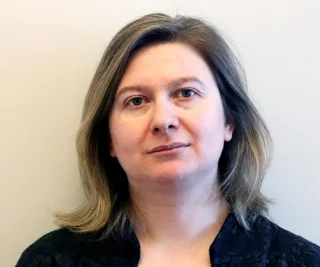
Marianna Muravyeva is Professor of Law at the University of Helsinki in Finland. She has been engaged in research and policy activities with public and voluntary sector organizations since 1996. She has worked as a researcher, trainer and professor for academic and non-academic agencies and projects, including the UN (UNDP program in Central Asia), NGOs (including women’s shelters in St. Petersburg) and a number of universities in Russia, Finland, the US and the UK. Her research is interdisciplinary, bringing together history, social sciences and law to examine long-term trends and patterns in social development with a special focus on normativity, gender and violence. She is the co-chair of the Women and Gender Network of the European Social Sciences History Conference and a founding member of the Russian Association of Women’s Historians (RAIZhI).
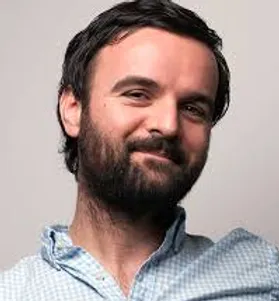
Piro Rexhepi is an independent researcher. He holds a Ph.D. in Politics from the University of Strathclyde and has held research fellowships at the Centre for Southeast European Studies at the University of Graz, the Center for Advanced Studies of Southeastern Europe at the University of Rijeka, and teaching positions at the State University of New York, City University of New York, and New York University. Since 2018, he has held a position as an Assistant Professor in Global Studies at Northampton Community College. His research focuses on the politics of religion, sexuality and coloniality in international relations, with a particular emphasis on the relationship between the Balkans and the Middle East. Previously, his work has examined the intersection of EU enlargement politics with sexual rights, exploring the production of Islamophobia in Muslim-majority countries in the Balkans. His research at MPI-MMG interrogated the ways in which the politics of preservation in Sarajevo and Salonika fuel urban renewal, gentrification, and Europeanization, having drastic effects on the lives of migrant and marginalized urban communities.
Panel V. Migration
March 1, 2024 11:00 - 12:30 p.m. EST
Moderator:

Alexandra Novitskaya is Title VIII Research Fellow at the Kennan Institute/Woodrow Wilson Center and Research Affiliate at Indiana University. Her research interests include post-Soviet queer migration and asylum, and politics and geopolitics of gender and sexuality. She is studying how contemporary political and state-sponsored homophobia in Russia and other post-Soviet states is informed by the geopolitical competition between Russia and the United States and especially their mutually constitutive discourses of sexual exceptionalisms; and the real and everyday life impact this discursive competition leaves on post-Soviet queer and LGBTQ Russian-speaking migrants and asylum-seekers. She has held visiting research appointments at the Jordan Center for the Advanced Study of Russia, New York University, and the Summer and Virtual Research Labs at the Russian, East European, and Eurasian Studies Center at the University of Illinois at Urbana-Champaign. She has published articles and book chapters on post-Soviet LGBTQ migration and homophobia in Russia as well as on gender in Russian politics in NORMA: International Journal of Masculinity Studies, The Russian Review, Post-Soviet Affairs, and the Routledge Handbook of Gender in Central Eastern Europe and Eurasia. Together with Janet Elise Johnson, Lisa McIntosh-Sundstrom and Valerie Sperling she also wrote essays for The Washington Post's Monkey Cage blog and The Conversation.
Speakers:

Randall Rowe is Assistant Professor of Russian, East European, and Eurasian Studies at the University of Cincinnati. He was the Visiting Assistant Professor of Russian and the Instructional Lead for the UC STARTALK program in Russian language from 2021-2023. He comes from the Ph.D. program in Slavic and East European Languages and Cultures at The Ohio State University. He defended his dissertation "Mediated Social Hierarchies and Gender & Sexuality in the Russian Federation" in 2023. He has a B.A. from Michigan State University and MAs from New York University and The Ohio State University. His areas of expertise are Cultural studies, Gender and Sexuality studies, Russian and Polish literature, film and media.
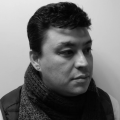
Evgenii Shtorn is Doctoral Candidate in Political, Societal and Cultural Change at the University of Helsinki in Finlanf. He is a writer, activist, and researcher from St Petersburg. Due to his involvement in civil-society work, he was forced to leave Russia in 2018. In 2019, he was granted international protection in the Republic of Ireland. He currently works as a social and cultural diversity consultant, collaborating with universities, and cultural and civil-society institutions. Shtorn’s writing has been published in academic journals, anthologies and new-media outlets in Russia, Spain, Germany, and Ireland. As an activist, he has been involved in human rights and LGBT advocacy for almost two decades. He is a co-founder of Queer Diaspora Ireland, an initiative that supports LGBT people living in direct provision. In 2020, Shtorn was awarded GALAS Person of the Year by the National LGBT Federation of Ireland (NXF).

Mariya Levitanus is Lecturer in Counselling and Psychotherapy at the University of Edinburgh. She is a scholar, queer activist, and psychotherapist trained within the dialogue between the person-centered approach and psychodynamic perspectives. She received her Doctorate in Psychotherapy from the University of Edinburgh in 2020. Her thesis is entitled “Regulation and Negotiation of Queer Subjectivities in post-Soviet Kazakhstan.” Previous and upcoming publications have focused on the role Soviet discourses in the narratives of queer people in Kazakhstan, queer emigration and queer activism in Kazakhstan and Russia. Mariya's work foregrounds lived experiences, examining how the socio-political context shapes everyday life in authoritarian regimes.

Maryna Shevtsova is FWO Senior Post-Doctoral Fellow at Katholieke Universiteit Leuven in Belgium. After defending her Ph.D., she was a Fulbright scholar (University of Florida) and a Swedish Institute Fellow (Lund University). She also held visiting fellowships with the Aleksanteri Institute, the University of Helsinki, Pompeu Fabra University, Barcelona, and the Middle East Technical University, Ankara. She is a co-founder of the Equal Opportunities Platform, a Dnipro-based Ukrainian NGO working towards combatting discrimination and promoting gender equality. In 2022, she joined the board of AtGender, the European Feminist Research Network. She is also involved in three non-profit initiatives helping researchers from Ukraine: UGS - Ukrainian Global scholars, UGU, Ukrainian Global University, and ScienceforUkraine, for which she is the national coordinator in Slovenia. She is also a winner of the 2022´s Emma Goldman award for her engagement in feminist research and human rights activism.
Panel VI. Activism
March 15, 2024 11:00 - 12:30 p.m. EST
Moderator:

Lyosha Gorshkov is a Director of LGBTQ+ Initiatives at Colgate University. Originally from Russia, Lyosha holds a PhD in Political Science that Lyosha received in 2009 from Perm State University. Lyosha introduced queer studies to Russian political science, actively promoting LGBTIQA+ within Russian academia. In 2014, Lyosha was forced to leave Russia and exiled to the United States, since Lyosha was being persecuted as an openly queer professor and advocate for LGBTIQA+ rights. Settling in New York City, Lyosha has emerged as one of the vocal leaders and community organizers for the Russian-Speaking LGBTIQA+ immigrant community. Lyosha has served as the Co-President at RUSA LGBT, the Russian Speaking American LGBTIQA+ Association since 2015. Prior to coming to Colgate, Lyosha served as a tenure faculty at Perm State University (Russia); Care Manager at the Alliance for Positive Change (New York); visiting scholar at Indiana University (Bloomington); and Assistant Director of Pride Center and Women's Center at Slippery Rock University (Pennsylvania).
Speakers:

Shota Kincha is Staff Writer for Open Caucasus Media, a Caucasus-focused online media outlet. He is responsible for reporting on Georgia. Shota was involved in queer activism in the early 2010s but later became increasingly critical of mainstream LGBTQI+ activism strategies. He was an independent blogger, freelance researcher, and invited lecturer at Tbilisi State University and Ilia State University before joining the Social Justice Centre, a Tbilisi-based human rights group and an ally of Georgia's queer community that helped raise awareness of queer rights among Georgians. Shota holds a master’s degree in Nationalism Studies from the University of Edinburgh and is interested in the intersection of gender and sexuality with Georgia's far-right groups. He closely monitors local ultra-conservative movements within the context of a broader, international 'anti-gender' perspective, particularly the Western influences on Georgian anti-equality movements.

Zhanar Sekerbaueva is a woman human rights defender, LGBTQI+ activist and a co-founder of Kazakhstan’s LGBTQ Feminist Initiative “Feminita”. She is also a journalist, poet, researcher and has a Ph.D. in Social sciences from the University of Tsukuba. In her work she aims at expanding the concept of ‘gender’ in the general public discourse through activism by mainstreaming questions of gender identity in academia. She graduated with Summa Cum Laude from the ‘Gumilev’ Eurasian National University in 2005, as well as from the ‘Lomonosov’ Moscow State University in 2009. In 2014 she enrolled at the European Humanities University (Lithuania) MA program in Sociology with focus on gender and culture. Completed study at the University of Tsukuba, Japan towards a Ph.D. degree. Her doctoral dissertation focuses on the processes of regulating identities and “normalization” of transgender people in Kazakhstan, where she is interested in understanding how the gatekeeping practices of legal professionals may or may not be shaping the gender identities of transgender individuals as they seek legal affirmation. Her latest publication is a chapter in the “Women, Sport and Exercise in the Asia-Pacific Region: Domination, Resistance, Accommodation” edited by Molnar G., Sara N. Amin, Yoko Kanemasu, as part of the Routledge Research in Sports, Culture and Society series.

Mohira Suyarkulove is Associate Professor in the Department of International and Comparative Politics at American University of Central Asia. She is a queer feminist scholar, teacher and activist living and working in Bishkek, Kyrgyzstan. She has led participatory action studies on lives of LGBTQ+ people in Kyrgyzstan as well as researched queer activism in South Caucasus and Central Asia. She teaches courses on feminism, sexuality, activism, ethics and diversity and art at AUCA. Mohira also engages in activist artistic practices and community organizing.

Tatsiana Shchurko is Post-Doctoral Scholar in the Department of Women, Gender and Sexualities at The Ohio State University. She is a researcher and queer feminist activist from Belarus committed to transnational and intersectional feminist theorizing and activism. Her work is situated within anti-colonial feminist theorizing with a focus on multiple imperialisms within and between Europe, Eurasia, and the United States. She has been awarded a 2023 American Council of Learned Societies Fellowship. Her current research project focuses on critical genealogies of transnational feminism, specifically centering on the connections between Black women’s transnational activism and Eurasian knowledge production. Specifically, her book project explores Black feminist solidarities in Eurasia, investigating how these interactions resonate with or may contribute to contemporary anti-imperialist feminist movements. She has taught a range of courses, including Gender, Sex, and Power; Black Women Writers; Health and Inequality; Sexualities and Citizenship; and Regulating Bodies: Global Sexual Economies.
Panel VII: On Ukraine
March 22, 2024 11:30 -12:30 p.m. EST
Moderator
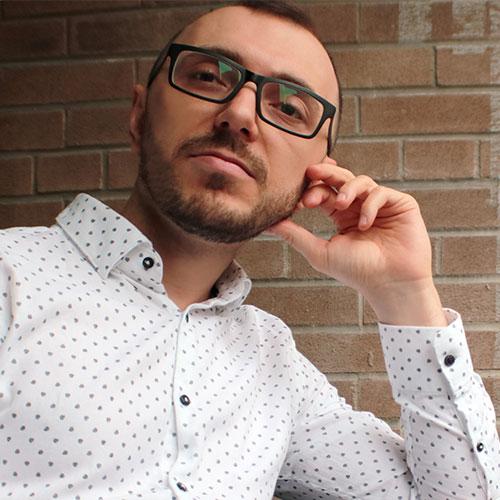
Alex Averbuch, (HURI Research Fellow at the Ukrainian Research Institute, Harvard University) is a scholar, poet, and translator. He earned his PhD in Slavic and Jewish studies at the University of Toronto with a dissertation on the history of solicitory poetry in Russian, Ukrainian, and Hebrew. Averbuch’s research explores commodity culture; gender and critical race theory; epistolarity; photography; theatricality and performance; translation; and creative writing in foreign language pedagogy. He has published on Ukrainian, Russian, and Jewish literature of the eighteenth century to the contemporary moment, in particular, on topics pertaining to womanhood, queerness, homoeroticism, gendered otherization, material culture, performativity, and constructs of power, as well as on intercultural and trans-epochal phenomena in Eastern Slavic and Jewish literatures. Averbuch is the author of three books of poetry and an array of literary translations between Hebrew, Ukrainian, Russian, and English. His latest book Zhydivs’kyi korol' (The Jewish King) was a finalist for the Shevchenko National Prize, Ukraine’s highest state award for works of culture. Averbuch is active in promoting Ukrainian-Jewish relations. He has translated into Hebrew and published over thirty selections of poetry by contemporary Ukrainian poets. Currently he is compiling and editing an anthology of contemporary Ukrainian poetry in Hebrew translation while also being a Postdoctoral Fellow at the Davis Center for Russian and Eurasian Studies, Harvard University for the academic year 2023-2024.
Speakers:
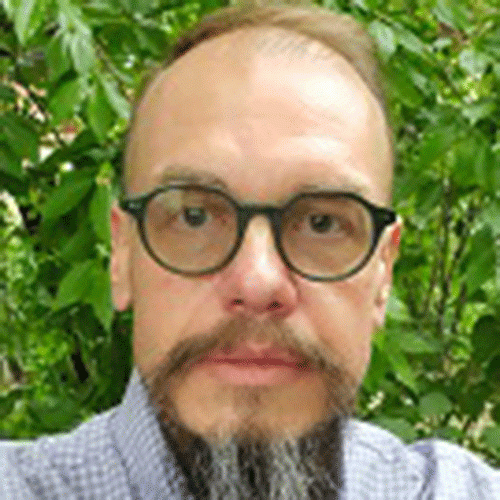 Vitaly Chernetsky is a Professor of Slavic Languages and Literatures at the University of Kansas. A native of Ukraine, he received his Ph.D. in Comparative Literature and Literary Theory from the University of Pennsylvania. He is the author of Mapping Postcommunist Cultures: Russia and Ukraine in the Context of Globalization (McGill-Queen’s University Press, 2007; Ukrainian-language version, 2013) and of articles on modern and contemporary Slavic and East European literatures and cultures where he seeks to highlight cross-regional and cross-disciplinary contexts. Among his research interests are postmodernism, the postcolonial and decolonial discourse, cultural aspects of globalization, questions of identity and community in diasporic contexts, translation studies, and gender and queer studies of Eastern Europe and Eurasia. A book in Ukrainian, Intersections and Breakthroughs: Ukrainian Literature and Cinema between the Global and the Local, is forthcoming from Krytyka. He co-edited a bilingual anthology of contemporary Ukrainian poetry, Letters from Ukraine(2016), and an annotated Ukrainian translation of Edward Said’s Culture and Imperialism (2007), and guest-edited a special issue on Ukraine for the film studies e-journal KinoKultura (2009). His translations into English include Yuri Andrukhovych’s novels The Moscoviad (2008) and Twelve Circles (2015) and a volume of his selected poems, Songs for a Dead Rooster (2018, with Ostap Kin), as well as Winter King, a poetry collection by Ostap Slyvynsky (with Iryna Shuvalova, 2023). Translation of Sophia Andrukhovych’s novel Felix Austria is forthcoming in 2024. He is a past president of the American Association for Ukrainian Studies (2009-2018) and the current first vice president of the Shevchenko Scientific Society in the U.S. In 2024, Prof. Chernetsky is serving as the President of the Association for Slavic, East European, and Eurasian Studies (ASEEES).
Vitaly Chernetsky is a Professor of Slavic Languages and Literatures at the University of Kansas. A native of Ukraine, he received his Ph.D. in Comparative Literature and Literary Theory from the University of Pennsylvania. He is the author of Mapping Postcommunist Cultures: Russia and Ukraine in the Context of Globalization (McGill-Queen’s University Press, 2007; Ukrainian-language version, 2013) and of articles on modern and contemporary Slavic and East European literatures and cultures where he seeks to highlight cross-regional and cross-disciplinary contexts. Among his research interests are postmodernism, the postcolonial and decolonial discourse, cultural aspects of globalization, questions of identity and community in diasporic contexts, translation studies, and gender and queer studies of Eastern Europe and Eurasia. A book in Ukrainian, Intersections and Breakthroughs: Ukrainian Literature and Cinema between the Global and the Local, is forthcoming from Krytyka. He co-edited a bilingual anthology of contemporary Ukrainian poetry, Letters from Ukraine(2016), and an annotated Ukrainian translation of Edward Said’s Culture and Imperialism (2007), and guest-edited a special issue on Ukraine for the film studies e-journal KinoKultura (2009). His translations into English include Yuri Andrukhovych’s novels The Moscoviad (2008) and Twelve Circles (2015) and a volume of his selected poems, Songs for a Dead Rooster (2018, with Ostap Kin), as well as Winter King, a poetry collection by Ostap Slyvynsky (with Iryna Shuvalova, 2023). Translation of Sophia Andrukhovych’s novel Felix Austria is forthcoming in 2024. He is a past president of the American Association for Ukrainian Studies (2009-2018) and the current first vice president of the Shevchenko Scientific Society in the U.S. In 2024, Prof. Chernetsky is serving as the President of the Association for Slavic, East European, and Eurasian Studies (ASEEES).
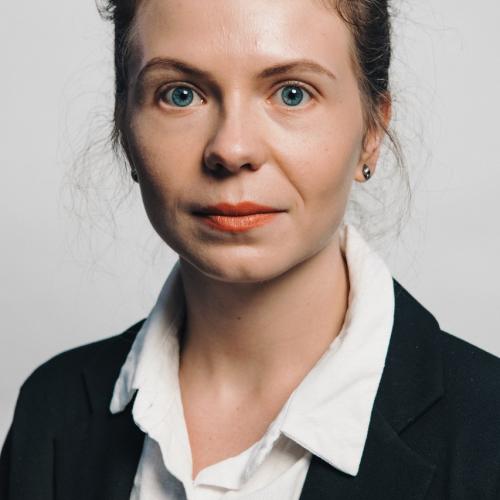 Dafna Rachok is a PhD Candidate in Anthropology at Indiana University Bloomington. Her work sits at the intersection of global health, gender and sexuality studies, and Ukrainian studies. Her most recent chapter “Nudes Buy Army Boots: Agency, Subjectivity, and the Erotic During War” explores the TerOnlyFans movement and how the all-out war in Ukraine reshaped public discussions on gendered subjectivity and nudity. Her other works can be found in Anthropologica and Economic Anthropology. Dafna has an MA in Anthropology from University of Alberta (Canada) and a BA in Cultural Studies from Kyiv-Mohyla Academy (Ukraine).
Dafna Rachok is a PhD Candidate in Anthropology at Indiana University Bloomington. Her work sits at the intersection of global health, gender and sexuality studies, and Ukrainian studies. Her most recent chapter “Nudes Buy Army Boots: Agency, Subjectivity, and the Erotic During War” explores the TerOnlyFans movement and how the all-out war in Ukraine reshaped public discussions on gendered subjectivity and nudity. Her other works can be found in Anthropologica and Economic Anthropology. Dafna has an MA in Anthropology from University of Alberta (Canada) and a BA in Cultural Studies from Kyiv-Mohyla Academy (Ukraine).
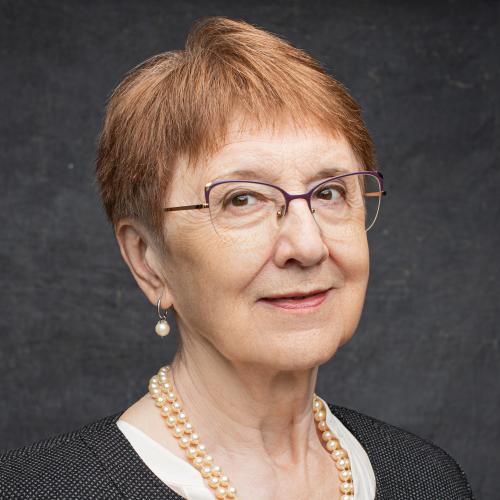 Prof. Tamara Hundorova (a.k.a. Gundorova) is Doctor of Science, and Corresponding Member of the NAS of Ukraine. She is the Principal Research Fellow at the Taras Shevchenko Institute of Literature (Ukraine) and is an Associate Fellow at HURI (USA) and Dean of the Ukrainian Free University (Germany). Currently she is a Visiting Professor at Harvard University and a Visiting Scholar at Princeton University. She is a member of PEN Ukraine. Tamara Hundorova is the author of many books including Lesia Ukrainka. Knyhy Syvilly (2023), The Post-Chornobyl Library. The Ukrainian Postmodernism of the 1990s (2019), Tranzytna kul’tura. Symptomy postkolonial’noi travmy (2013), Kitsch i Literatura. Travestii (2008), Franko i/ne Kameniar (2006); Femina melancholica. Stat' i kul'tura v gendernij utopii Ol'hy Kobylians'koi (2002) and more than 300 articles and chapters on modernism, postmodernism, feminism, postcolonial studies, and history of Ukrainian literature. Prof. Hundorova taught the courses at Princeton and Harvard Universities (USA), Toronto University (Canada), Greifswald University (Germany), Ukrainian Free University (Germany), Kyiv-Mohyla University (Ukraine), Kyiv National University (Ukraine). She is a former Fulbright Scholar (1998, 2009), Visiting scholar of Monash university (Australia, 1991) and a recipient of Yacyk Distinguished Fellowship (2009), Shklar fellowship (HURI, 2001-2002), Foreign visitors fellowship (Hokkaido University, 2004), MUNK School of Global Affair fellowship (University of Toronto, 2017), and Fellowship of Philipp Schwartz-Initiative of Alexander von Humboldt-Stiftung (University of Giessen).
Prof. Tamara Hundorova (a.k.a. Gundorova) is Doctor of Science, and Corresponding Member of the NAS of Ukraine. She is the Principal Research Fellow at the Taras Shevchenko Institute of Literature (Ukraine) and is an Associate Fellow at HURI (USA) and Dean of the Ukrainian Free University (Germany). Currently she is a Visiting Professor at Harvard University and a Visiting Scholar at Princeton University. She is a member of PEN Ukraine. Tamara Hundorova is the author of many books including Lesia Ukrainka. Knyhy Syvilly (2023), The Post-Chornobyl Library. The Ukrainian Postmodernism of the 1990s (2019), Tranzytna kul’tura. Symptomy postkolonial’noi travmy (2013), Kitsch i Literatura. Travestii (2008), Franko i/ne Kameniar (2006); Femina melancholica. Stat' i kul'tura v gendernij utopii Ol'hy Kobylians'koi (2002) and more than 300 articles and chapters on modernism, postmodernism, feminism, postcolonial studies, and history of Ukrainian literature. Prof. Hundorova taught the courses at Princeton and Harvard Universities (USA), Toronto University (Canada), Greifswald University (Germany), Ukrainian Free University (Germany), Kyiv-Mohyla University (Ukraine), Kyiv National University (Ukraine). She is a former Fulbright Scholar (1998, 2009), Visiting scholar of Monash university (Australia, 1991) and a recipient of Yacyk Distinguished Fellowship (2009), Shklar fellowship (HURI, 2001-2002), Foreign visitors fellowship (Hokkaido University, 2004), MUNK School of Global Affair fellowship (University of Toronto, 2017), and Fellowship of Philipp Schwartz-Initiative of Alexander von Humboldt-Stiftung (University of Giessen).
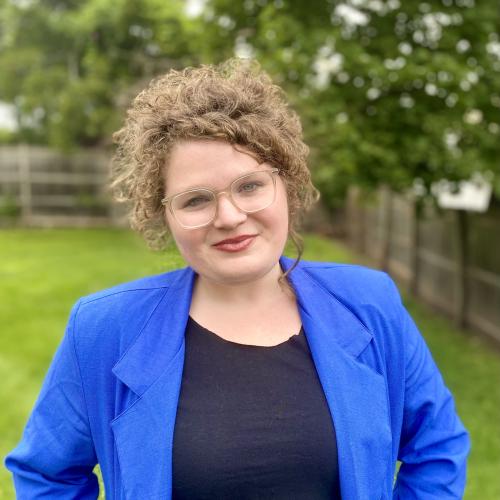 Dr. Sandra Joy Russell is a Visiting Lecturer in Gender Studies at Mount Holyoke College in South Hadley, Massachusetts. Trained in Comparative Literature and Women, Gender, and Sexuality Studies, her research examines how the feminist and queer literary and visual cultures of Ukraine enact a politics of care and belonging and engender a powerful anticolonial ethic, and she positions Ukrainian queer and feminist genealogies within broader transnational and anticolonial discourses. Her latest chapter, “’Are These Guys Gay or Merely from Moscow?’: Homonationalism and Martyrology in Ukrainian Literature, 1991-Present," was published in the edited collection Queer Transnationalities. In addition to her research and teaching, Dr. Russell is also the Associate Editor of Apofenie Magazine, and the Editor of Ukraïnica: The Primary Database of Ukrainian Studies—an online catalogue of English Translations of Ukrainian Literature and Film supported by the Harvard Ukrainian Research Institute.
Dr. Sandra Joy Russell is a Visiting Lecturer in Gender Studies at Mount Holyoke College in South Hadley, Massachusetts. Trained in Comparative Literature and Women, Gender, and Sexuality Studies, her research examines how the feminist and queer literary and visual cultures of Ukraine enact a politics of care and belonging and engender a powerful anticolonial ethic, and she positions Ukrainian queer and feminist genealogies within broader transnational and anticolonial discourses. Her latest chapter, “’Are These Guys Gay or Merely from Moscow?’: Homonationalism and Martyrology in Ukrainian Literature, 1991-Present," was published in the edited collection Queer Transnationalities. In addition to her research and teaching, Dr. Russell is also the Associate Editor of Apofenie Magazine, and the Editor of Ukraïnica: The Primary Database of Ukrainian Studies—an online catalogue of English Translations of Ukrainian Literature and Film supported by the Harvard Ukrainian Research Institute.
This series was developed and implemented by the Center for Russian, East European, and Eurasian Studies at the University of Pittsburgh, the Davis Center for Russian and Eurasian Studies at Harvard University, and the Center for Slavic, East European and Eurasian Studies (CSEEES) at The Ohio State University with support from the Association for Slavic, East European & Eurasian Studies
CO-SPONSORS
Center for Russian, East European, and Eurasian Studies, University of Kansas
Center for Russian, East European, and Eurasian Studies, University of Michigan
Center for Slavic, Eurasian and East European Studies, UNC-Chapel Hill
Center for Russian, East European, and Eurasian Studies, The University of Texas at Austin
Inner Asian and Uralic National Resource Center, Indiana University Bloomington
Institute for European, Russian, and Eurasian Studies, The George Washington University
Institute of Slavic, East European, and Eurasian Studies, University of California, Berkeley
Melikian Center for Russian, Eurasian, and Eastern European Studies, Arizona State University
Robert F. Byrnes Russian and East European Institute, Indiana University, Bloomington

